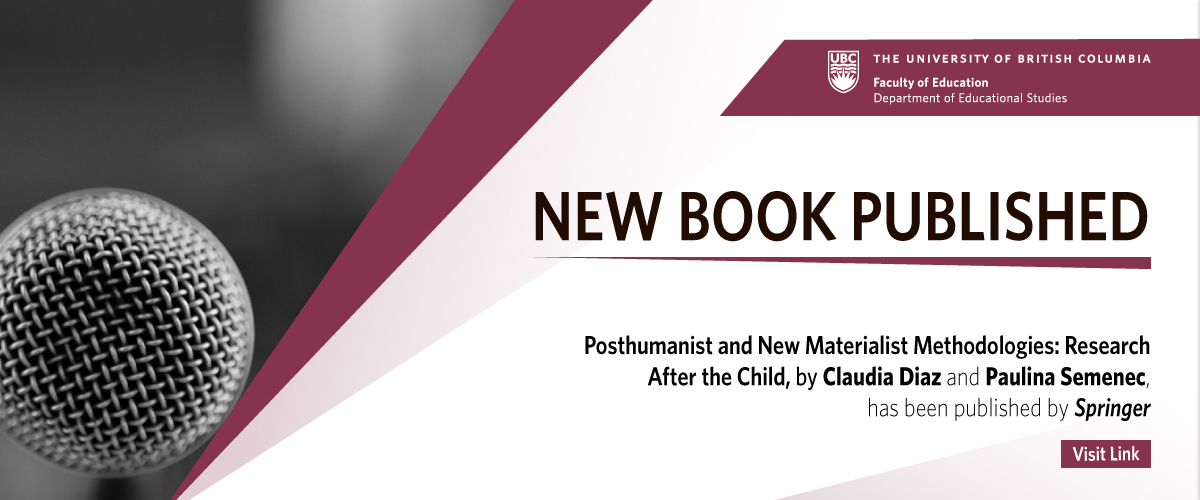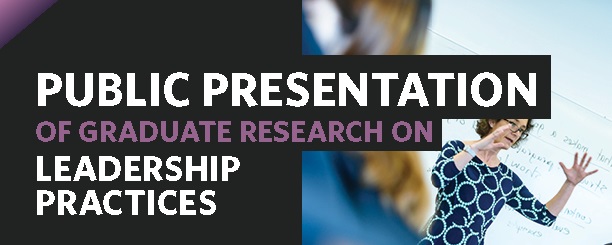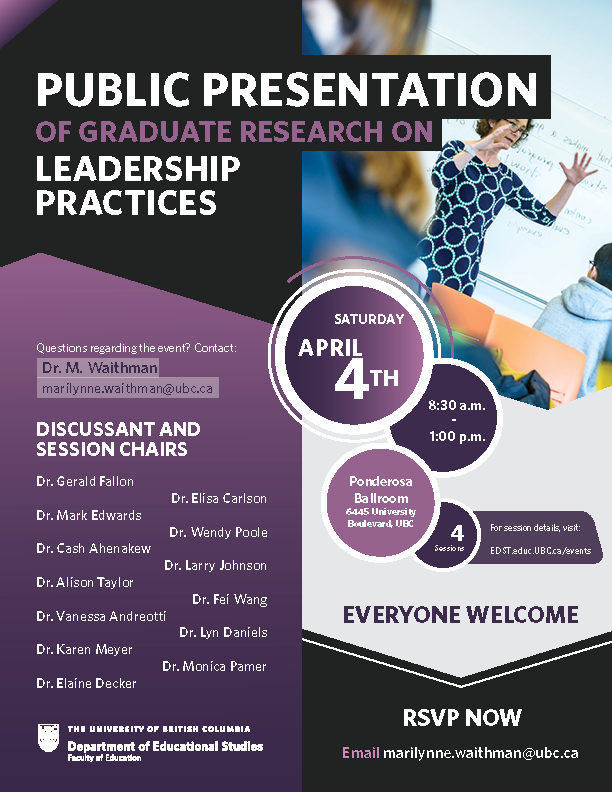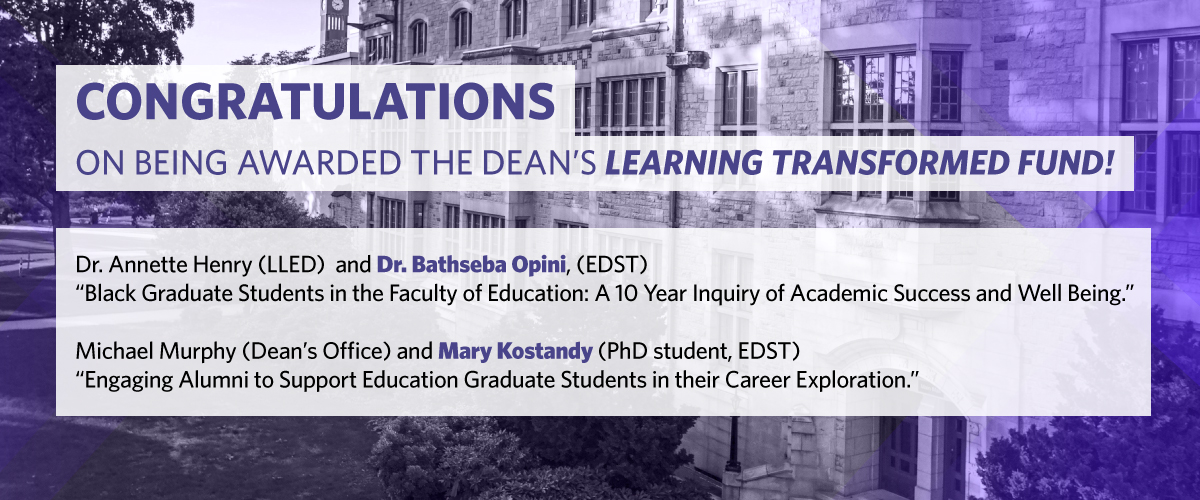Thank you for visiting this page, the proceedings are finished.
Video-presentation-P1
Thank you for visiting this page, the proceedings are finished.
Video-presentation-K1
Thank you for visiting this page, the proceedings are finished.
Video-presentation-D1
Thank you for visiting this page, the proceedings are finished.
Video-meeting-D1
Thank you for visiting this page, the proceedings are finished.
Event Cancelled
Public Presentation of Graduate Research on Leadership Practices
Saturday, April 4, 2020 Event Cancelled
Education Centre at Ponderosa Commons
6445 University Boulevard
Vancouver
Please join us over coffee and muffins for introductions and an explanation of the day’s program.
8:30 a.m.
Ponderosa Ballroom
Student presentations
9:00 – 1:00pm
Refer to the following agenda for room numbers and our schedule.
Session info:
EdD Writing Retreat

Join us at the Annual EdD (Virtual) Writing Retreat!
March 20, 2020
Keynote and workshops on Zoom.
The EdD program is pleased to have you join us for our third annual writing retreat on March 20, 2020!
Please see the schedule here
Register
In response to important and necessary precautions being put in place due to COVID-19, we are moving the EdD Writing Retreat to a fully on-line webinar format. It will continue virtually on Friday March 20, 2020.
If you would like to join the new webinar format please register here in advance: https://zoom.us/webinar/register/WN_hQAFBeY4SO-IWrSf50JW6g
After registering, you will receive a confirmation email containing information about how to join the webinar through zoom on March 20th.
Meet our Keynote Speaker

Dr. Claudia Ruitenberg
Department Of Educational Studies
Faculty Of Education
UBC
Claudia Ruitenberg was born and raised in The Netherlands. She first came to Canada in 1987 to attend the Lester B. Pearson United World College of the Pacific on Vancouver Island, and returned in 2000 for doctoral studies at Simon Fraser University. She divides her time between Vancouver and Salt Spring Island.
She was Academic Director of UBC Vantage College (2017-2019), President of the Canadian Philosophy of Education Society (2016-2019), and Scholar in the Centre for Health Education Scholarship (2013-2017).
Schedule
| Time | Session |
With
|
| 9:00am-9:15am | Sign into zoom using the information provided through email after registering. | |
| 9:15am – 9:20am | Welcome message, how to use the platform and review of the day. | Tamara Baldwin (EdD 2017) |
| 9:20-10:15am |
Keynote: Acts of Translation in Scholarly Writing Dr. Claudia Ruitenberg is Professor in the Department of Educational Studies, with a focus on philosophy and theory of education. One of her areas of research is speech act theory, with which she has examined the effects of language use in various educational contexts. A second area of research is translation, understood not only between languages but also between language registers and discourses. In her talk, titled “Acts of Translation in Scholarly Writing,” Dr. Ruitenberg will identify the various ways in which thesis writing, and scholarly speaking and writing, more generally, involves multiple acts of translation and code-switching. She will pay special attention to the translational moves required for practice-oriented research.
|
Dr. Claudia Ruitenberg |
| 10:15-10:45am | Break | |
| 10:45-11:15am | Workshop: Getting and staying organized as a grad student | Dr. Deirdre Kelly |
| 11:15am- 1:30pm | Writing at home | |
| 1:30-2:00pm | Workshop: How to Read Real Good | Dr. Sam Rocha |
| 2:00- 2:15pm | Break | |
| 2:15-2:45 | Workshop: Understanding & Moving Through Writer's Block | Dr. Shauna Butterwick |
| Writing at home – best wishes! |
If you have questions related to the event or the technology, please do not hesitate to contact Tamara Baldwin at tamara.baldwin@gmail.com.



